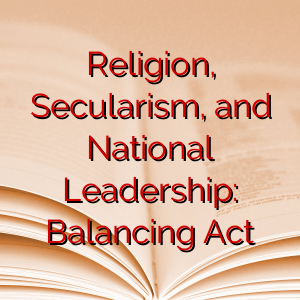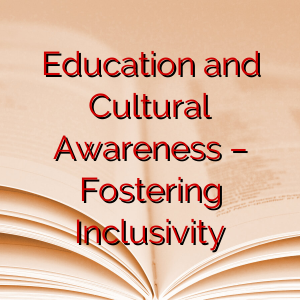Leadership in a Pluralistic Society – Addressing Diversity and Inclusion
Leadership in a pluralistic society is a multifaceted and demanding role that requires a deep understanding of the complexities and opportunities presented by diversity. In the modern world, most nations are melting pots of cultures, beliefs, and identities, making the task of uniting citizens from various backgrounds more crucial and challenging than ever before. As the leader of such a nation, it is imperative to recognize and address diversity and inclusion at the core of one’s leadership. This essay explores the challenges and responsibilities of leaders in a diverse society and outlines strategies to inspire unity and inclusivity.
class=”text-body font-regular text-gray-800 leading-[24px] pt-[9px] pb-[2px]” dir=”ltr”>Challenges of Leadership in a Diverse Society
Leadership in a pluralistic society presents several challenges that demand careful consideration and nuanced approaches. These challenges include:
- Navigating Cultural Differences: A diverse society is often composed of numerous cultural groups with their own traditions and values. Navigating these cultural differences requires cultural sensitivity and respect for each group’s unique identity.
- Managing Religious Pluralism: Religious diversity can be a source of strength, but it can also lead to tensions. A leader must ensure that the principles of freedom of religion are upheld and that religious conflicts are managed peacefully.
- Political Ideologies: Citizens may hold a wide range of political ideologies, from conservative to liberal, and everything in between. Balancing the interests and concerns of these diverse political groups is a constant challenge for a leader.
- Economic Disparities: Socioeconomic disparities within a diverse nation can lead to division and social unrest. Leaders must address these disparities through policies that promote economic inclusivity.
- Historical Injustices: Many diverse societies have a history of injustices and discrimination against specific groups. Acknowledging and addressing these historical wrongs is essential to building trust and unity.
Responsibilities of a Leader in a Diverse Society
As the leader of a diverse nation, it is incumbent to recognize the unique responsibilities that come with the role. These responsibilities include:
- Fostering Inclusivity: The foremost responsibility is to foster inclusivity and ensure that all citizens, regardless of their background, feel valued and represented in the nation’s governance.
- Promoting Equality: A leader should work to promote equality in all aspects, including access to education, employment, and social services.
- Encouraging Dialogue: Open and constructive dialogue among different cultural, religious, and political groups is crucial for maintaining unity. A leader should encourage such conversations and provide a platform for them.
- Addressing Historical Injustices: Leaders must acknowledge and address historical injustices to promote healing and reconciliation within society.
- Economic Inclusivity: Developing policies and initiatives that reduce economic disparities and promote economic inclusivity is a critical responsibility of leadership.
- Respecting Freedom of Expression: Upholding the principles of freedom of expression, even when it means allowing diverse and sometimes opposing viewpoints to be heard, is essential.
- Foreign Policy and Diplomacy: Leaders must represent the nation effectively on the international stage and promote peace and cooperation with other diverse nations.
Strategies for Inspiring Unity and Inclusivity
To inspire unity and inclusivity in a pluralistic society, a leader should employ several strategies:
- Lead by Example: A leader’s behavior and rhetoric should exemplify respect for diversity and inclusivity.
- Education and Awareness: Promote educational programs that raise awareness of different cultures, religions, and histories to foster understanding and respect.
- Inclusive Policies: Develop and implement policies that prioritize inclusivity and equality in all aspects of society, from education to healthcare.
- Community Engagement: Encourage community engagement, involvement in local initiatives, and volunteer work to build social bonds.
- Cultural Celebrations: Celebrate the diversity of the nation by endorsing and participating in cultural events and festivities.
- Conflict Resolution: Develop effective conflict resolution mechanisms to address disputes and tensions within diverse communities.
- Addressing Economic Disparities: Implement economic policies that bridge the wealth gap and provide opportunities for marginalized communities.
In conclusion,
leadership in a pluralistic society is a multifaceted role that requires a deep understanding of diversity and a commitment to fostering unity and inclusivity. Challenges, responsibilities, and strategies must be carefully considered to ensure that a leader can effectively inspire and guide a diverse and multifaceted nation towards a brighter and more harmonious future.

Hello! Welcome to my Blog StudyParagraphs.co. My name is Angelina. I am a college professor. I love reading writing for kids students. This blog is full with valuable knowledge for all class students. Thank you for reading my articles.




